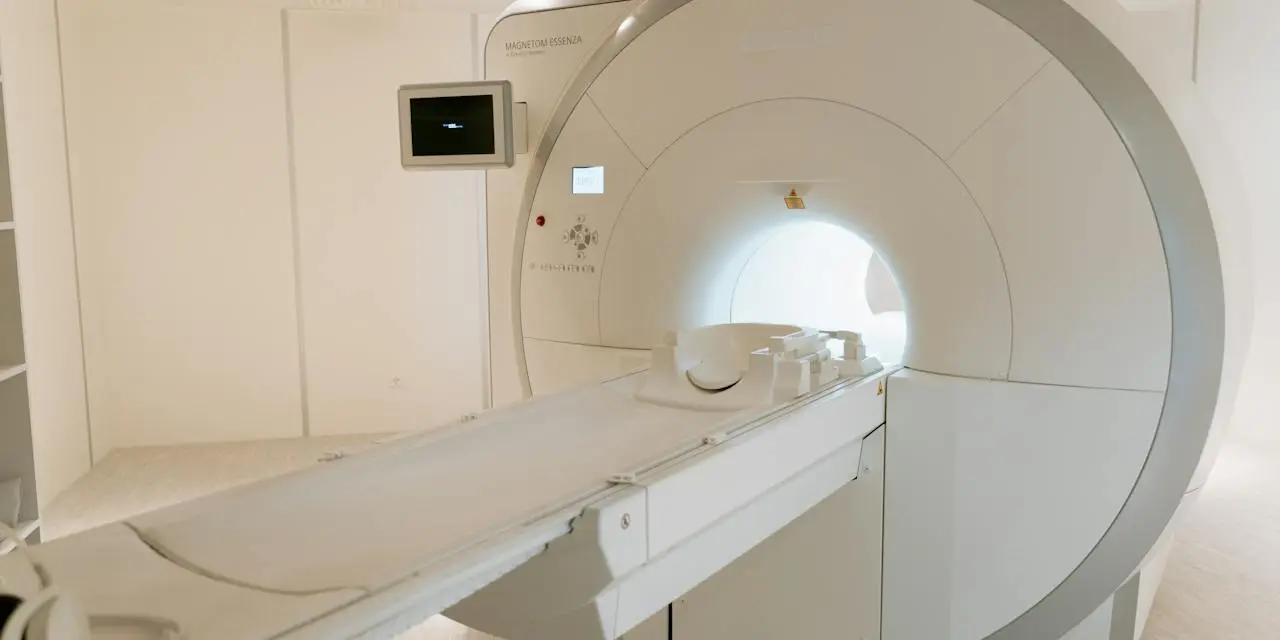
Bayer continues to advance its comprehensive Radiology portfolio with progress in the development pipeline of its investigational contrast agent as well as new innovations in the area of Artificial Intelligence (AI). The company announced that new clinical data for gadoquatrane, Bayer’s investigational macrocyclic gadolinium-based compound currently in Phase III development, will be presented at the 2023 Radiological Society of North America (RSNA) Annual Meeting – taking place from November 26 to 30, 2023, in Chicago, USA. Bayer also announced the results of a recently published paper on the cost effectiveness of supplemental screening methods for women with dense breasts in the U.S., to provide greater certainty around the clinical and economic benefits of supplemental screening methods. In addition, Bayer announced four collaboration agreements with the aim to further expand the offering on its medical imaging platform Calantic™ Digital Solutions.
The activities at RSNA reflect Bayer’s commitment as a leading company in key areas of radiology to address today’s industry challenges and accelerate innovation for the benefit of patients and their clinicians, including harnessing the vast potential of artificial intelligence (AI).
New clinical data for investigational contrast agent gadoquatrane being presented at RSNA 2023
International Multicenter Phase 2 Dose Finding Study of Gadoquatrane: A Dose of 0.04 mmol Gd/ kg body weight (bw) of Gadoquatrane Has Similar Efficacy to 0.1 mmol Gd/kg bw of Gadobutrol
Abstract No. 3922, Session No. W7-SSNR13
- Background: Gadoquatrane, Bayer’s investigational macrocyclic gadolinium-based compound currently in Phase III, has the potential to enable a substantially lower gadolinium dose.
- The Purpose of this Phase II study was to establish a dose of gadoquatrane with similar efficacy as gadobutrol for use in CE-MRI, which is the standard of care in diagnostic imaging procedures of the Central Nervous System (CNS), in adult patients with known or highly suspected CNS lesions.
- The Phase II results supported the further development of gadoquatrane with a dose of 0.04 mmol Gd/kg body weight in a broad Phase III program.
New insights into cost effectiveness and capacity needs of supplemental screening modalities for dense breasts
During RSNA 2023 Bayer will announce the publication of a novel health economic model in the Journal of Medical Economics, funded by Bayer, analyzing cost effectiveness and infrastructural capacity of supplemental imaging modalities for women with dense breasts at average and intermediate risk of breast cancer. While ultrasound had the lowest incremental cost-effectiveness ratios, magnetic resonance imaging (MRI) and contrast-enhanced mammography (CEM) demonstrated the best clinical outcomes, compared to x-ray mammography or digital breast tomosynthesis (DBT) alone. Existing MRI scanner capacity has the potential to meet most of the supplemental screening needs of this population. More information can be found in the link to the publication.
Fostering innovation in Radiology AI
In more than 30 panel discussions, Bayer’s AI team composed jointly of experts from both Calantic™ Digital Solutions and Blackford Analysis as well as external thought leaders, will share insights to help healthcare providers, hospital administrators and developers advance their AI strategy, discussing topics like regulatory challenges in the field of AI in medical imaging, app selection, and how to leverage clinical utility frameworks to assess return on investment (ROI). Partner companies from both Bayer and Blackford will present various app approaches and solutions.
While Blackford provides infrastructure and access to a rich clinical application (ClinApp) ecosystem focused on imaging and analytics, Bayer’s own platform Calantic™ Digital Solutions which is building on technology from Blackford and adding additional workflow and analytics components, delivers access to applications for medical imaging, including those enabled by AI – coming with the value proposition to support diagnosis and increase the throughput of medical imaging examinations. On the occasion of RSNA 2023, Bayer also announced that it will partner with radiology AI technology providers Perspectum Limited, Brainomix Limited, Qure.ai, and Imagine Software – with the aim to further expand the offering on its medical imaging platform CalanticTM Digital Solutions.
In addition, Bayer is offering various tech talks, including pilot “Spark Tank Sessions” where app companies at an early stage can learn new ways to refine their value proposition, and get feedback such as optimal workflow and commercialization pathways from an expert panel. Calantic SPARK, Bayer’s accelerator program for medical imaging app developers to further foster innovation in radiology AI, will showcase its partners Imagine Software (Within Health) and Scanslated. Bayer’s Calantic SPARK is a targeted program to help radiology AI startups of all stages get to market faster by offering advice spanning medical, regulatory, reimbursement expertise, and market access – thereby enabling commercialization and distribution through Calantic™ Digital Solutions.
Blackford, the global strategic AI platform and solutions provider that was acquired by Bayer under the well-established company’s arm’s length model, continues to expand its AI portfolio and global strategic relationships in advance of RSNA. The AI portfolio available via the Blackford Platform now includes over 100 applications from 40 separate partner vendors. Blackford has also recently entered into partnerships with global medical imaging provider Philips, healthcare interoperability provider Rhapsody and enterprise imaging provider Mach7 to support their respective journeys into AI solution provision.
Taking a glimpse at a radiology clinic of the future
Reflecting Bayer’s overall RSNA 2023 theme “Let’s Envision the Future of Radiology”, the Experience Center at Bayer’s main booth (#2519) will offer visitors an immersive tour through a radiology clinic of the future. Here they can discover the company’s digital, integrated, disease-oriented solutions across the entire radiology workflow – through the eyes of a patient. The Experience Center includes 21 different stations along the journey, each with interactive content, including Augmented Reality (AR).





